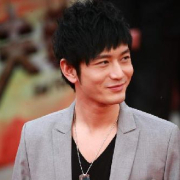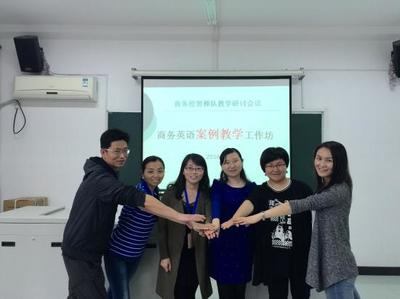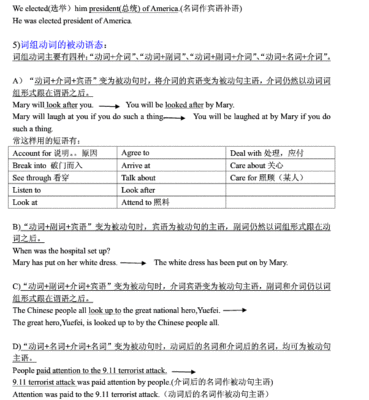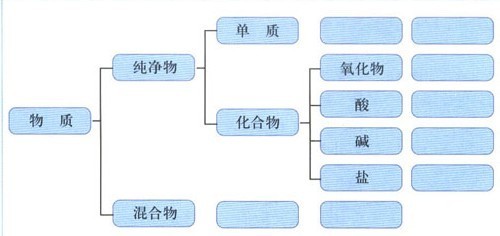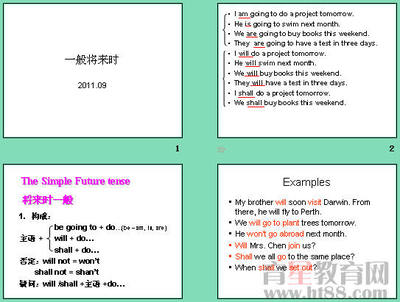本周我们复习了一般现在时,对于大部分同学来说,还是有一定难度的。尤其是一般现在时概念的理解和一般现在时中的第三人称单数,否定句和一般疑问句等句型的变化。很多同学存在着混淆的现象,所以需要同学们上课认真听讲,不断地总结和辨析,才能真正掌握。
时态训练一般现在时(一)
I.一般现在时:一般表达一个事实和存在的状态或经常发生的动作等状况。在这个时态中,人称与动词是一般现在时最重要的两个部分。结构:主语+动词主语为第三人称单数时,动词要变成第三人称单数:
2.动词第三人称单数的变化规则。
A:直接加s
B:以ch,sh,s,x结尾的单词加es(washes, watches)
C:以辅音字母加y结尾的单词,变y为i加es。(studies) eg:
1. He gets up at six o’clock. 2. Mikesometimes goes to the park with his sister.3. Ben alwayshas a lot of questions.
一般现在时的标志词:
always(一直) often(经常)usually(通常) sometimes (有时) never(从不) everyday(每天)
II.单项选择
1. ( ) Mymother _______ in a primary school.
A. work B.works C.working D. worker
2. ( )Tomalways____ to play football . A.likes B. likeC. liking D. likeing
3. ( ) Sue_______ a sister.A.have B.having C.haveing D. has
4. ( )Ling ling _______ a prettygirl. A.is B.are C.am D. were
5. ( ) She_______ inShanghai. A.live B. livesC. living D. liveing
6. ( )What ______ Ling ling usually do? A.do B.doing C.does D. did
7. ( ) He_______ Englishbook.A. reads B.read C.reading
8. ( ) She_______breakfast with her familyeveryday.
A.have B.having C.has D. haveing
9. ( ) It_____seven o’clock in the morning. A.am B.is C.has D. are
10. ( )Mr. Smith __English in a middle school. A.teach B. teaching C.teaches
11. ( )He_______very good English. A.speak B.speaks C.speaking
12. ()This skirt _______likeMary’s. A.looks B.looking C.look
13. ( )He_____ math very much. A.liking B.like C.likes D. likeing
14. ( )Everyone _____to learn from Lei Feng.
A. want B.wantsC. wanting D. wanted
15. ( )Sam _______from England. A.come B. coming C. comeing D.comes
16. ( )Tim _______very well. A.swim B. swimming C.swimedD. swims
18. ( )What ____Jack do at the weekend? A.doesB.do C.has D.doing
时态训练一般现在时(二)
I.把下列动词变为第三人称单数形式
work()play ()rain()visit()look()want()
come()speak()buy()do() go()wash()
watch()teach()fly()study() carry()have()
II.单项选择
1. ( )Daming _______ football. A.play B.plays C.playing D. player
2. ( )What ____ Alice usuallydo?A.does B.do C. doingD. did
3. ( ) He______ TV everyevening.
A. watch B.watching C.watched D. watches
4. ( )What _____ she haveeveryday?A. did B.do C. doingD. does
5. ( ) She_______ Chinese and Englisheveryday.
A.have B.having C.has D. had
6. ( )What _____ Lingling usually do? A.do B. doingC. does D. did
7. ( ) He_______ acar.A.haveB.having C.has D. had
8. ( ) She_______breakfast with her familyeveryday.
A.have B.having C.has D. haveing
9. ( ) It____seven o’clock in themorning. A.am B.is C.has D. are
10. ( )Mr. Smith ______English in a middle school .
A. teachB.teachingC.teaches
11. ( )Mr.Li ____a son and a daughter. A.have B. having C.has D. haveing
12. ()This skirt _______likeMary’s.A.looksB.lookingC.look
13. ( )Mymother _______to eat chicken forlunch.
A. notlike B. don’tlike C.doesn’t like
14. ( )Everyone _______to learn from LeiFeng.
A.want B.wants C.wanting D. wanted
15. ( )Sam ____from England. A.come B.comingC. comeing D.comes
16. ( )______your sister have a football ? A.Does B. Do C.DoingD. Has
17. ( ) MrLi ___many books about cars. A.hasB.have C.having D. are
18. ( )What _____Jack do at theweekend? A.does B.do C.has D. doing
19. ( )How _______he usually come home from school ?
A.do B.does C.has D. doing
20. ( )What _______he like?A.do B.does C.has D.doing
21. ( )Mary _______got a new book aboutanimals
A.haveB.has C.having D.haveing
时态训练一般现在时(三)
I.一般现在时句型变化--否定句、一般疑问句及回答、特殊疑问句:
1. be动词的变化。
否定句:主语+ be + not +其它。
如:He is not a worker.他不是工人。Tom andAlice are not here.汤姆和爱丽丝不在这儿。
一般疑问句:Be +主语+其它。
如①-Are you a student?②-Isshe a prettygirl?③-Are they happy?
-Yes. I am. /No, I'mnot.-Yes, she is./ No, sheisn’t.–Yes, they are./ No, they aren’t.
2.行为动词的变化。
否定句:主语+ don't( doesn't )+动词原形(+其它)。如:
I don't likebread.We don’t read thesebooks.My friends don’t play basketball.
当主语为第三人称单数时,要用doesn't构成否定句。如:
He doesn't oftenplay.This girl doesn’t play football everyday.
一般疑问句:Do( Does )+主语+动词原形+其它。如:
①- Do you often playfootball?②-Do the doctors smileeveryday?
- Yes, I do. /No, Idon't.-Yes, theydo. /No, they don’t.
当主语为第三人称单数时,要用does构成一般疑问句。如:
①-Does she go to work bybike?②-Does your uncle like thismovie?
-Yes, she does. / No, shedoesn't.–Yes, he does. /No, he doesn’t.
特殊疑问句:疑问词+一般疑问句。如:Where is mybike? What do you do in the playground?
What does your mother like? What does he usuallydo after school?
II.用动词的正确形式填空。
1.Weoften___________(play) in the playground.
2.He_________(get) up at six o’clock.
3.__________you_________(brush) your teeth every morning?
4.What__________(do) heusually_________(do) after school?
5.Danny__________(study)English,Chinese, Math, Science and Art at school.
6.Mike sometimes__________(go) to the park with his sister.
7. She __________(watch) TV with hisparents in the evenings.
8.________ Mike________(read) English everyday?
9. Tom(swim)in the river very often in Summer .
10. The boy(watch)TV every day .
11. She usually(do)her homework in the evenings.
12. Tom and Tony(swim)very well.
13. What does your father ______ (do)? He’sa worker.
14. Jim and Tom often ____ (do)morning exercises .
III.改句子
1. I havemany books. (改为否定句)
2.Davidhas got a goal. (改为一般疑问句)
3.GaoShan’s sister likes playing table tennis(改为否定句)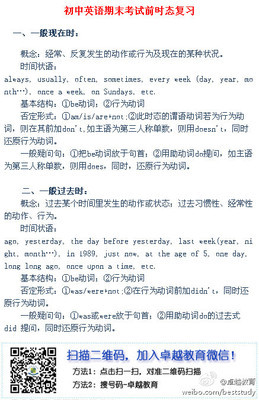
4.Shelives in a small town near NewYork.(改为一般疑问句)
5. I watch TVevery day. (改为一般疑问句)
时态训练一般现在时(四)
I.在一般现在时的句子中,如果前面使用了助动词can/can’t, ,must/ mustn’tshould/shouldn’t等,尽管主语是第三人称单数,后面的动词用动词原形。
如:He should say hello to his friends.
He can sing the song.
II、选择填空:
( )1.LiPing and Li Ying often ________ basketball.
A. play B.plays C. areplaying
( )2. CanI______ this book? A.have B.hasC. having
( )3. Ioftentomusic in the morning. .
A.listenB.listeningC. listens
( )4. What______ that in thebox? Ashirt.
A.amB.isC.areD. be
( )5. CanITV?Sure. A.watching B.watch C.see
( )6、Shelikeswimming.
A.doesn'tB.don'tC. isn't.
( )7. Herethemoney. A.are B.is C.am
( )8.There _______ a table and two chairs in Jenny’s room.
A.amB.isC. are
( )9. ._____ you ride a bike afterschool? A.Are B.Does C. Can
( )10.What ______ the students have? They have some pens
A.AreB.doesC. do
( )11. Thechild often _______ TV in the evenings.
A. watches B.watch C.watchs
( )12.______ Helen ______ to school by bus?
A. Does, went B. Do,go C. Does,go
( )13. Ilike English . Tom ______ _______(not like )English.
A. don’t likeB. doesn’t likes C. doesn’tlike
( )14. Heoftentoschool by bike.
A. doesn’t, go B. doesn’t,goesC. don’t, go
III、根据提示将短文补充完整。
Li Ming usuallygup before 6:00.After he gets up hedsome exercises for 15 minutes. Hegto school at about 6:30.Hehsix classes every day, four in the morning, twoin the afternoon. The first classsat 8:20.Heehis lunch in the school.
After his lunch, he sometimesrbooks, sometimes has a rest. After school in theafternoon, he oftenpfootball with his friends for an hour. Heghome at 5:00.He eats dinner at 7:00.Before eatingdinner, he usuallywhis hands. In the evening. Hedhis homework.
After that, hewTV for an hour. And then hewhis face andbhis teeth. Hegto bed atabout 10:00.
时态训练一般现在时(五)
I、写出下列动词的第三人称单数形式。
1.drink | 9.buy | 17.pass | 24.eat | ||||
2.stay | 10.say | 18.watch | 25.run | ||||
3.make | 11. like | 19.brush | 26.begin | ||||
4.look | 12.read | 20.teach | 27. have | ||||
5.come | 13.play | 21.catch | 28.go | ||||
6.plant | 14.help | 22.wash | 29.do | ||||
7.sit | 15.ask | 23.carry | 30.fly | ||||
8..study | 16. write |
II、选择填空
1.______go and help her.(A)Let'sme (B)Let's us(C)Let's(D)Let's to
2.Do they have a new car? Yes,_____.
(A) they are(B) theyhave (C) theydon't(D) they do
3.He often _________ supper at 6:00 in the evening.
A.have B.has C. is having D. iseating
4. He sometimes _______ at six o’clock --in the morning.
A. getup B. getsupC. is getingupD. is getting up
5. What do you do at the weekend ? I usually_____TV.
A. watchB. watches C. towatch D.watching
6. We _____________ any Chinese classes on Friday.
A. arehavingB. aren’t havingC.don’thaveD. are have
7. Tom _______ an English class on Monday morning .
A. ishavingB.hasC.havingD. have
8. Are you a basketball player ? No, we _____. A.isn’t B.aren’t C.not D. don’t
9. Where ______ he ______ from?
A. is,come B. do,come C. does,come D. is , from
10. What language do you ______ ?A.say B. speakC. talk D. tell
11. I usuallyfootballon Friday afternoon.
A.play B.plays C. amplaying
12.sheina small village near New York.
A. Do,lives B. Does,liveC. Does,livesD. Do, live
III、按照要求改写句子。
1.Mike watches TV every evening.(改为否定句)
________________________________________
2.We speak English very well.(改为否定句)
__________________________________________
3.She likes milk.(改为一般疑问句,作肯定回答)
___________________________________________________
4.I do my homework every day.(改为一般疑问句,作否定回答)
___________________________________________________
5.John comes from Canada.(对划线部分提问)
___________________________________________________
6..They often go to school at 6:30. (对划线部分提问
 爱华网
爱华网